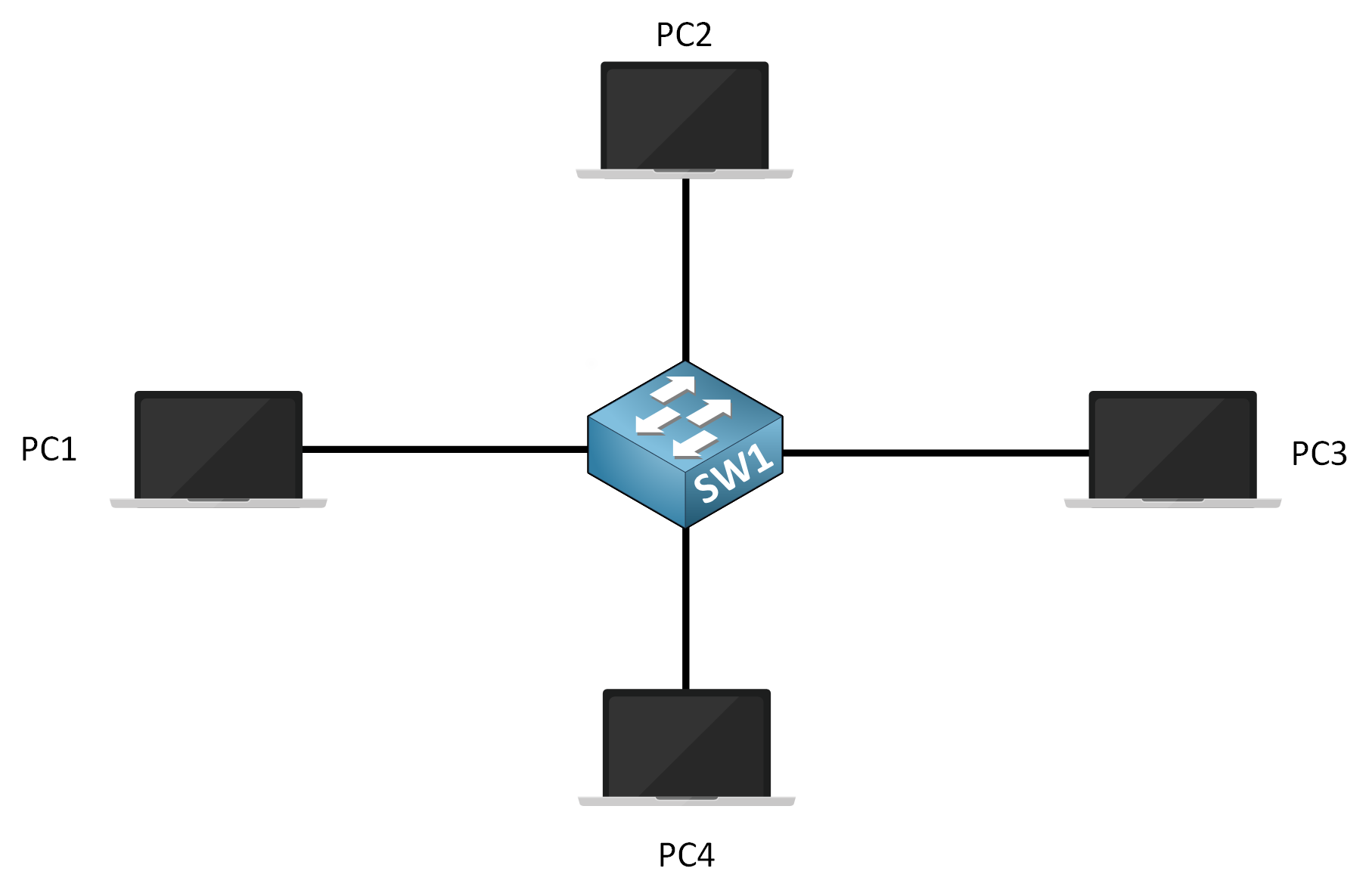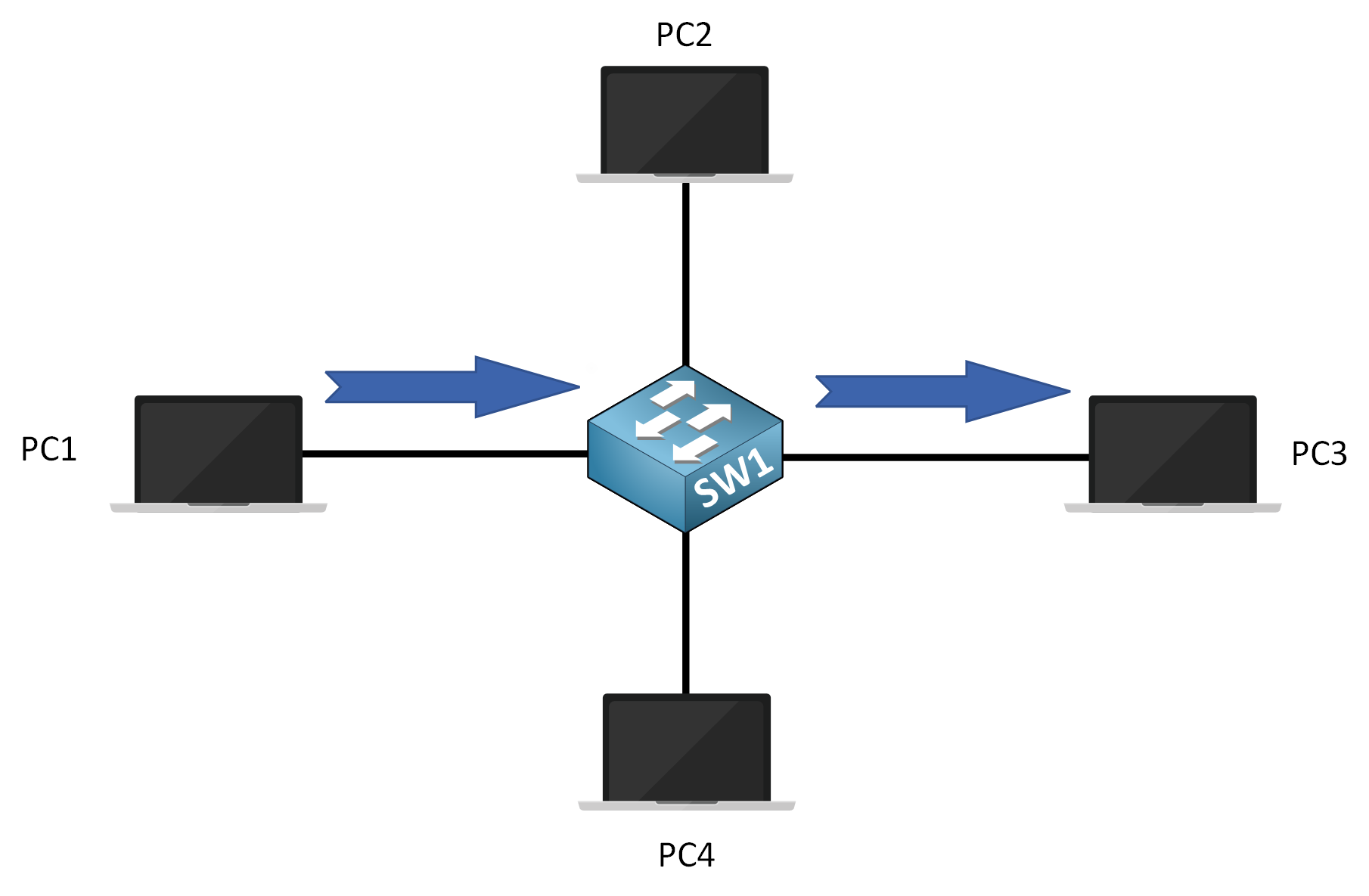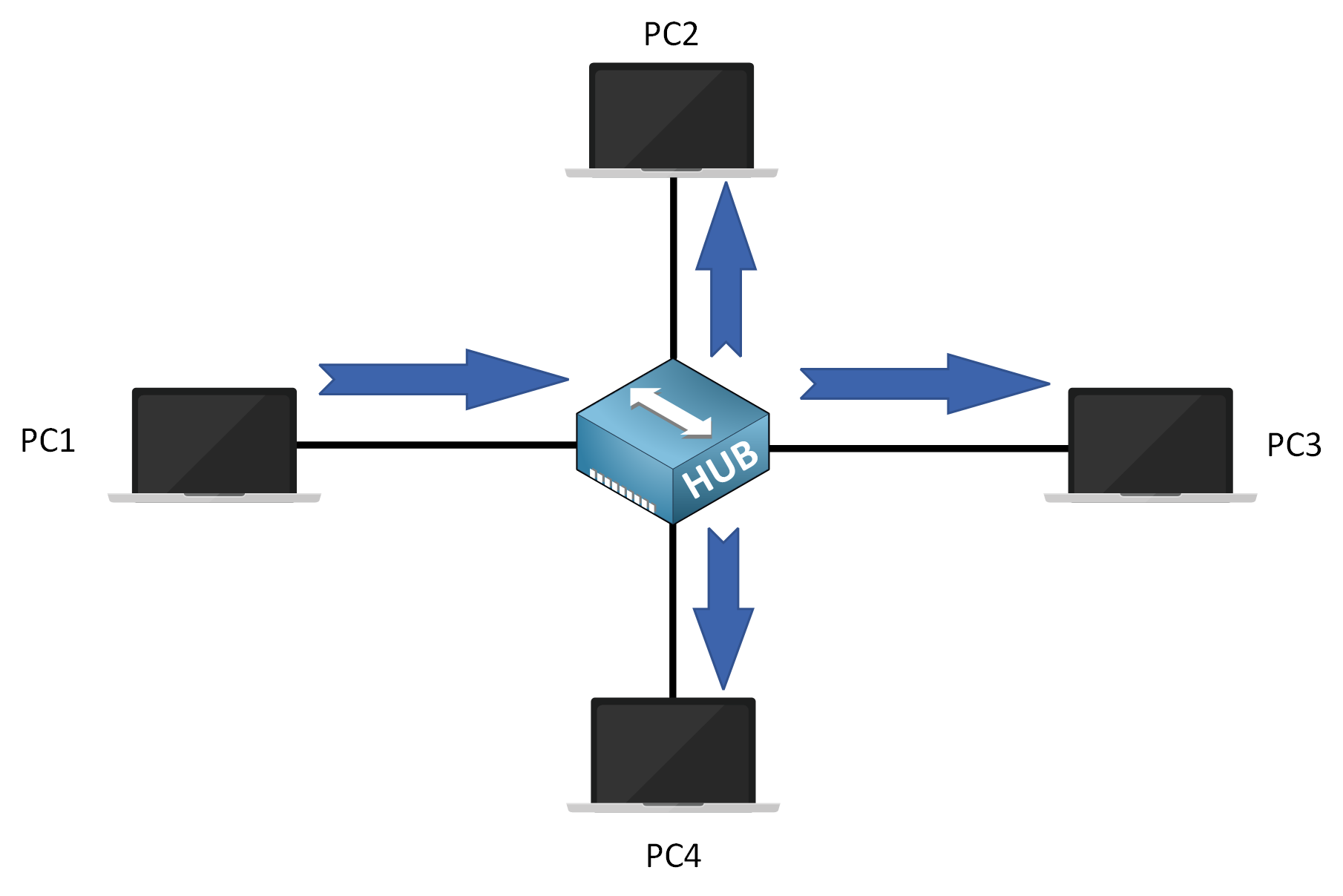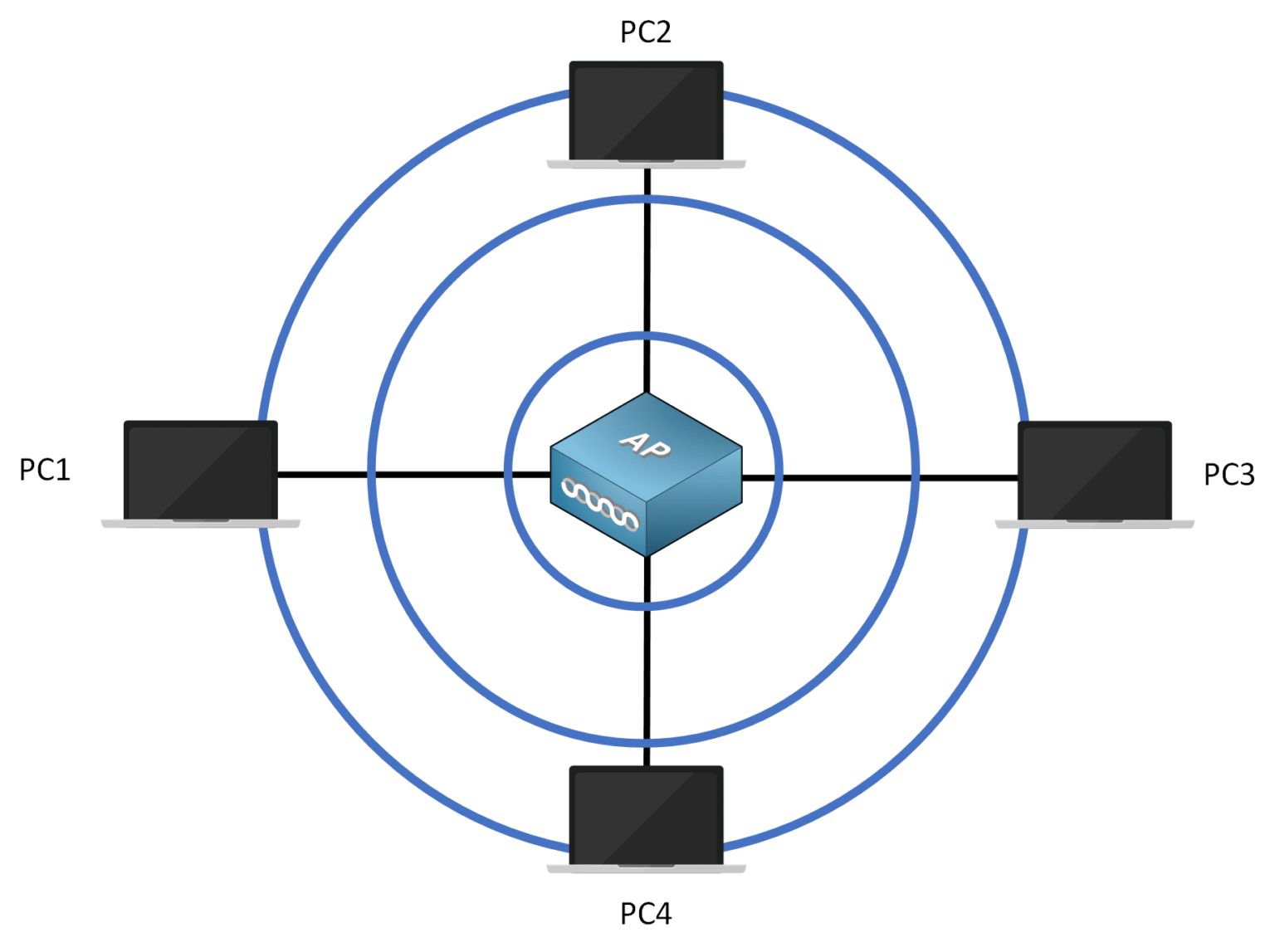Let’s start with a question: how does data travel from one device to another?
In this lesson, we’ll look at a wireless vs wired network because traffic on Wi-Fi doesn’t behave like traffic on a cable, this difference drives speed, collisions, and security.
In Wired Networks with a Switch
In wired networks with a switch, data travels directly to the recipient:

Figure 1 – Switched Wired Network
When PC1 sends data to PC3, the switch forwards the data only to PC3 based on its destination MAC address.

Figure 2 – Full-duplex communication in a switched wired network
PC2 and PC4 don’t receive the data because the switch sends it privately to the intended recipient.
Communication occurs in full-duplex mode, PC1 and PC3 can send and receive data simultaneously without collisions.
Answer the question below
In a switched wired network, what mode allows devices to send and receive at the same time?
In Hub-Based Wired Networks
In hub-based wired networks, data is sent as a broadcast:
When PC1 sends data to PC3, the hub broadcasts the data to all devices on the network (PC2, PC3, and PC4).

Figure 3 – Data broadcast in a hub-based wired network
PC3 is the only device that processes the data while PC2 and PC4 ignore it.
Communication is in half-duplex mode when using a hub meaning devices can only send or receive data, not both at the same time.
This shared-medium behavior can lead to transmission conflicts if multiple devices, such as PC1 and PC4, attempt to send data at the same time.
Answer the question below
What network device causes all frames to be broadcast to every connected device?
In Wireless Networks with an Access Point (AP)
In wireless networks with an Access Point (AP), data is transmitted over a shared medium, which makes it appear similar to a hub at a physical level.
When PC1 sends data to PC3, the frame is transmitted over the air, so all devices within range can receive the signal.

Figure 4 – Frame is transmitted over the air
40 % Complete: you’re making great progress
Unlock the rest of this lesson
If you’d like to continue your CCNA journey, simply create your free account.
Access all CCNA lessons
Practice with hands-on labs
Train with Practice exams and Quizzes
Progress tracking in your dashboard
Made by network engineers - CCNP certified
learners globally
Wireless vs Wired Networks
Wireless vs. wired networks differ in how data is transmitted, how collisions occur, and how security is handled. This lesson will show you why wireless traffic behaves more like a hub and how CSMA/CA solves these challenges.